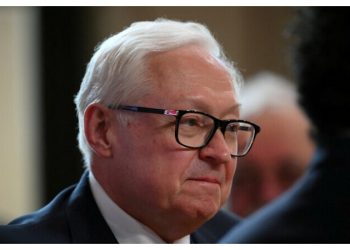BEIJING: International Monetary Fund (IMF) said the emergence of new COVID-19 variants and rising inflation have thrust the global economy into a “weaker position than previously expected.”
The IMF lowered its growth outlook for China and the rest of the world and said Beijing’s zero-Covid policy — which has seen entire cities locked down over a handful of cases — has spurred a slowdown in the world’s second-largest economy.
It might be time for Beijing to “recalibrate” its stance in order to ease pressure on global supply chains and economic growth, the fund’s newly-installed first deputy managing director Gita Gopinath told a news agency.
Beijing shrugged off IMF warnings about the economic impact of its aggressive anti-Covid policy, saying on Wednesday that China has achieved “significant results” and is a key driver of global growth.
Chinese foreign ministry spokesman Zhao Lijian said the country’s “status as an important engine of global economic growth has not changed,” adding that Beijing has achieved “significant results” in its economic rebound and boosting global economic recovery. “China has always adopted scientific, comprehensive and effective prevention and control measures,” he told reporters.
In China, the IMF pointed to shutdowns related to its zero-tolerance COVID-19 policies in lowering growth expectations by 0.8%. The IMF now expects the Chinese economy to grow by 4.8% this year, compared to 5.6% as forecast in October. Global growth was reduced by half a point from the Fund’s October estimate.
Although the Chinese economy made a quick bounceback after the virus first emerged in central Wuhan city, growth in the final three months last year slowed to four percent with the economy shaken by a series of shocks towards the end of 2021. Economists have cautioned that growth is under pressure in the country, partly because of renewed Covid outbreaks and restrictions.
Although numbers are low compared with those in other countries, Beijing’s zero-Covid approach has seen harsh local lockdowns imposed over handfuls of cases. Many restrictions have hit port cities, manufacturing centres or financial hubs, clogging crucial points in China’s supply and production chains.
In the United States, the IMF said the collapse of President Joe Biden’s Build Back Better fiscal package, alongside an earlier pullback in easy money policies from the Federal Reserve, led to a 1.2% downward revision. The US economy is now expected to expand by 4.0% this year, compared to the 5.2% it had originally forecast in October.
































